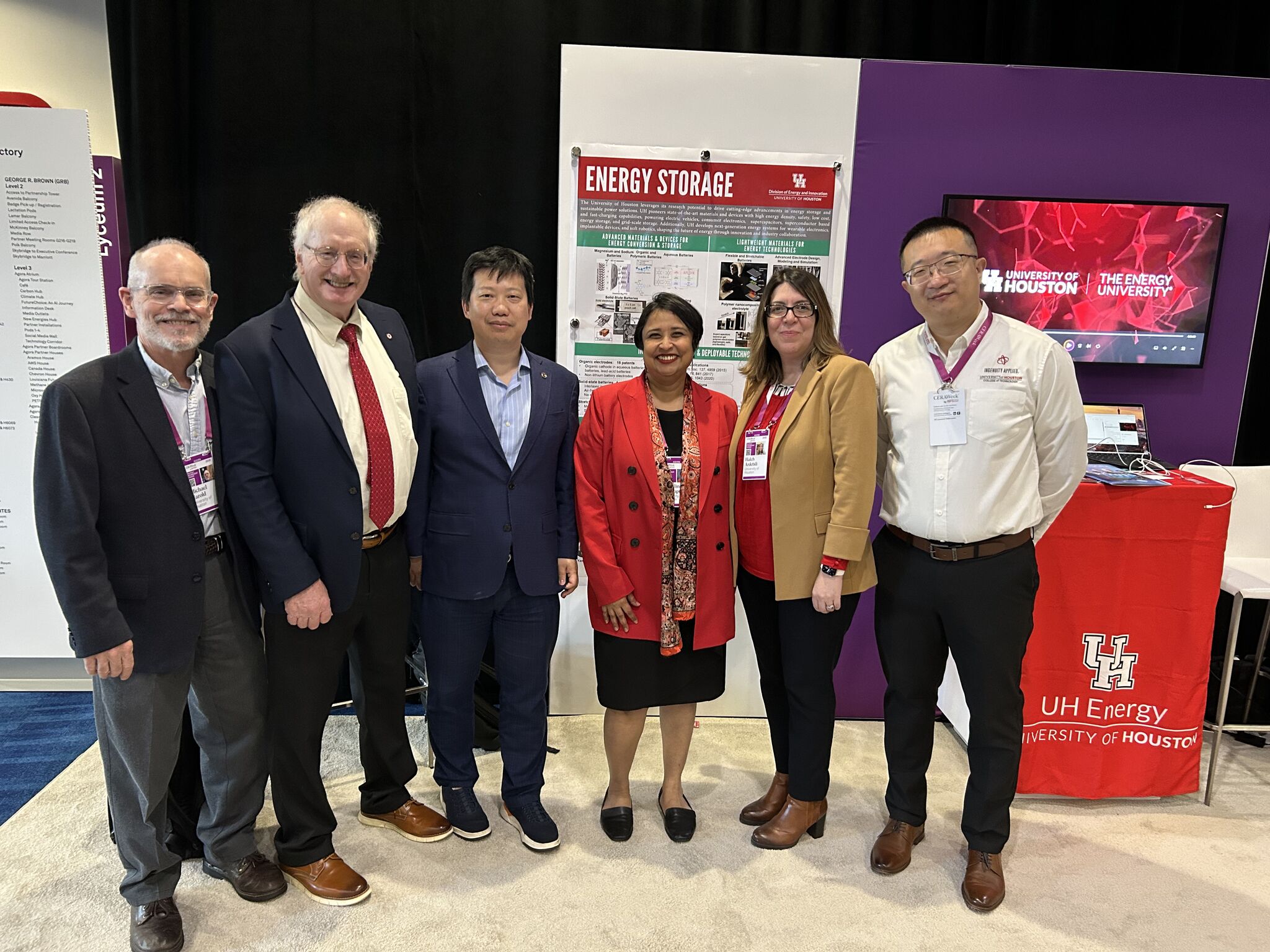
CERAWeek 2025, the energy industry’s premier event, gathered over 10,000 attendees and 1,400 speakers from 89 countries in Houston. This year’s conversations emphasized the urgent need to scale energy production in response to increasing global demand, particularly from sectors like AI and industrial electrification. The University of Houston, through its energy-focused research initiatives and UH Energy, played a key role in these discussions, showcasing the critical contributions of academic institutions in driving innovation and shaping the future of energy systems.
“Energy demand is only going to rise significantly over the next decade, especially in AI and because of data center needs. There were significant discussions along the corridors about this,” explains Dr. Debalina Sengupta, Chief Operating Officer of the Energy Transition Institute. “In one case, we had a leading oil/gas company talking with a top tech company about how they can meet the supply and demand. We were able to make that connection because we work with both of those entities.”
The demand for electricity is rising rapidly, with significant pressure on U.S. energy infrastructure. Energy Secretary Chris Wright highlighted that AI, along with the electrification of industries, is contributing to an unprecedented spike in electricity needs. With large gas turbines in short supply until 2028, energy officials are turning to alternatives such as smaller turbines, nuclear plants, and demand-side management to fill the gap.
“The critical question was ‘how do we meet demand with the current landscape?’, Sengupta said. “We have heard a lot about nuclear and the oil energy mix and the need for an increase in natural gas, especially with Texas being the heartbeat of shale gas production.”
A major topic at CERAWeek was the evolution of the energy transition, which is shifting from a singular focus on renewable energy to a broader, “energy addition” approach. While solar and wind energy remain central to the conversation, experts have increasingly emphasized the importance of energy security and affordability, especially as challenges in scaling renewables persist. Sustainable hydrogen and carbon capture initiatives, though once seen as vital components of decarbonization, have been slower to develop.
Throughout the conference, attendees discussed the geopolitical risks and supply chain congestion facing U.S. energy companies, especially in natural gas and critical materials like steel and copper. Despite these hurdles, decarbonization remains a top priority for many companies, with ongoing investments focused on improving energy efficiency and reducing emissions.
Dr. Sengupta says UH Energy was approached as a resource for information in this climate. “There was a lot of discussion on the current political climate which is impacting
funding opportunities. Companies who are looking at downturns in the next few years, where do they find those dollars for the development of new technologies? Companies were very interested to hear about our model for funding and achieving long-term success with research.”
In this global conversation, UH Energy’s cutting-edge research and partnerships highlight the university’s pivotal role in advancing energy solutions, collaborating with industry leaders to address the pressing challenges of today’s energy landscape. As the industry moves toward an uncertain future, the University of Houston remains committed to do its part in shaping solutions that balance technological advancement with the need for reliable, affordable energy.